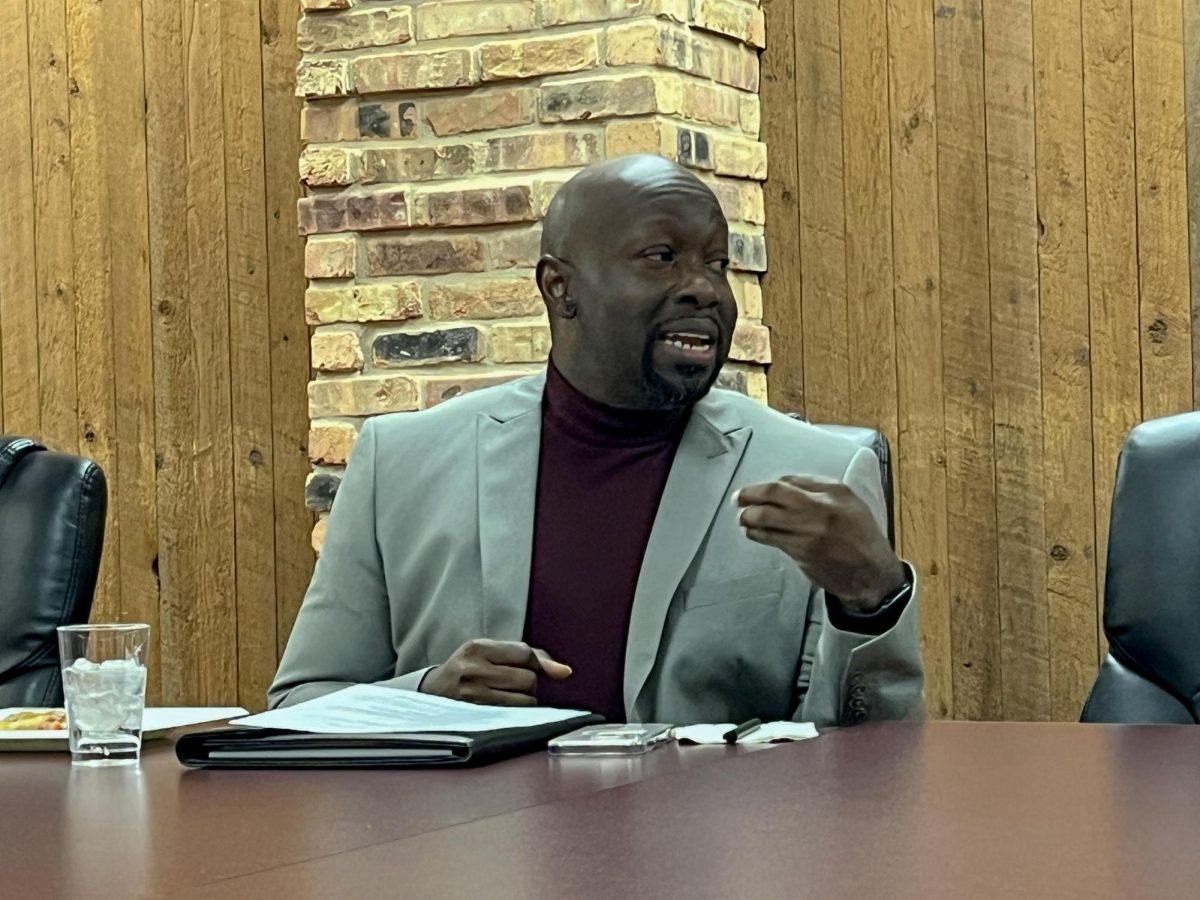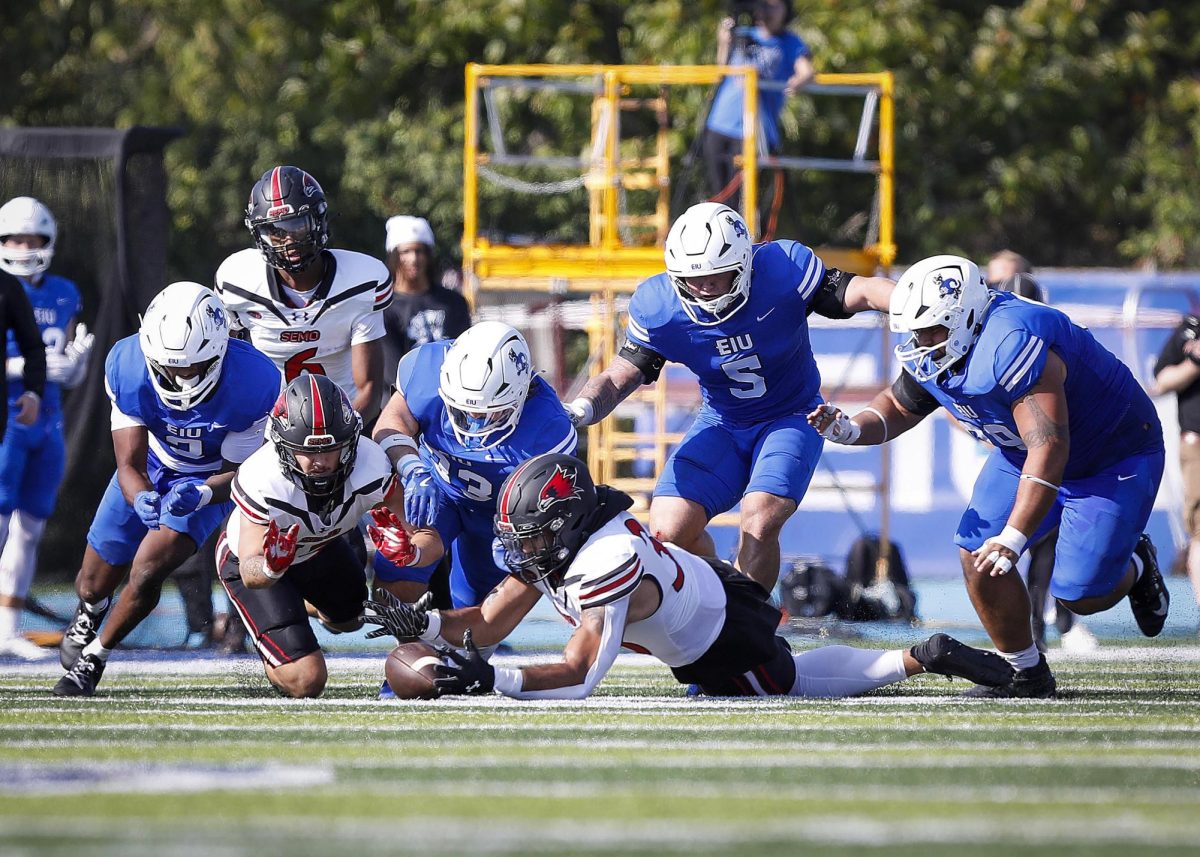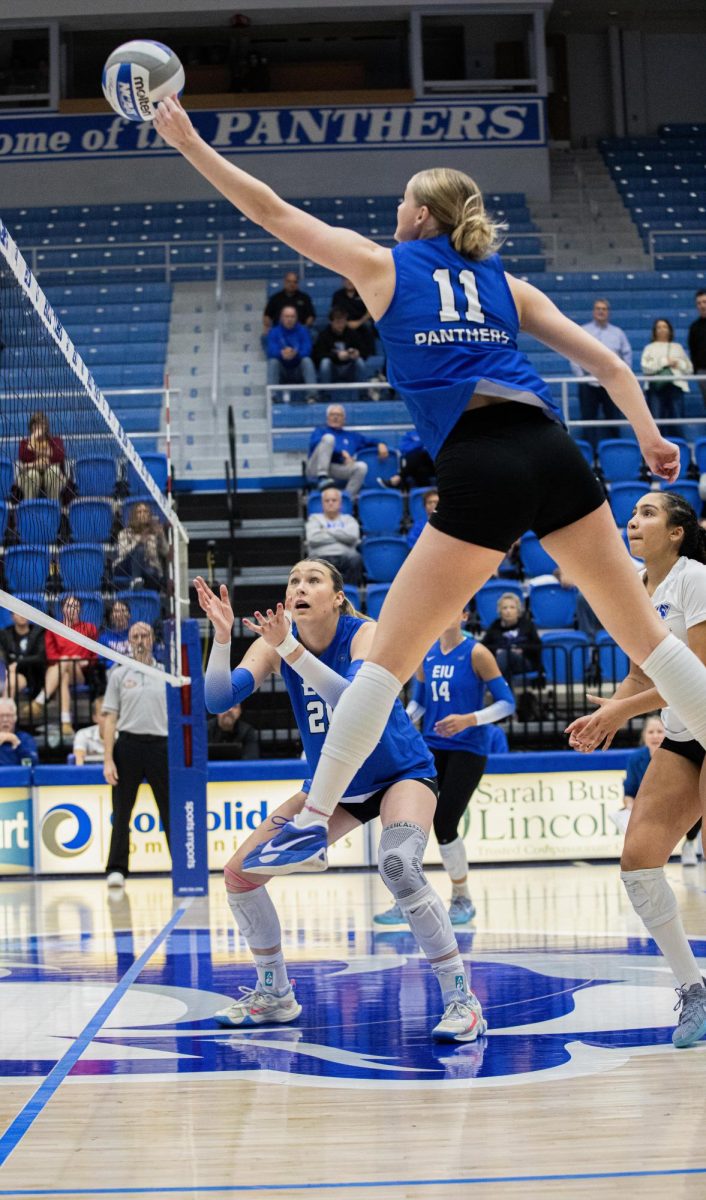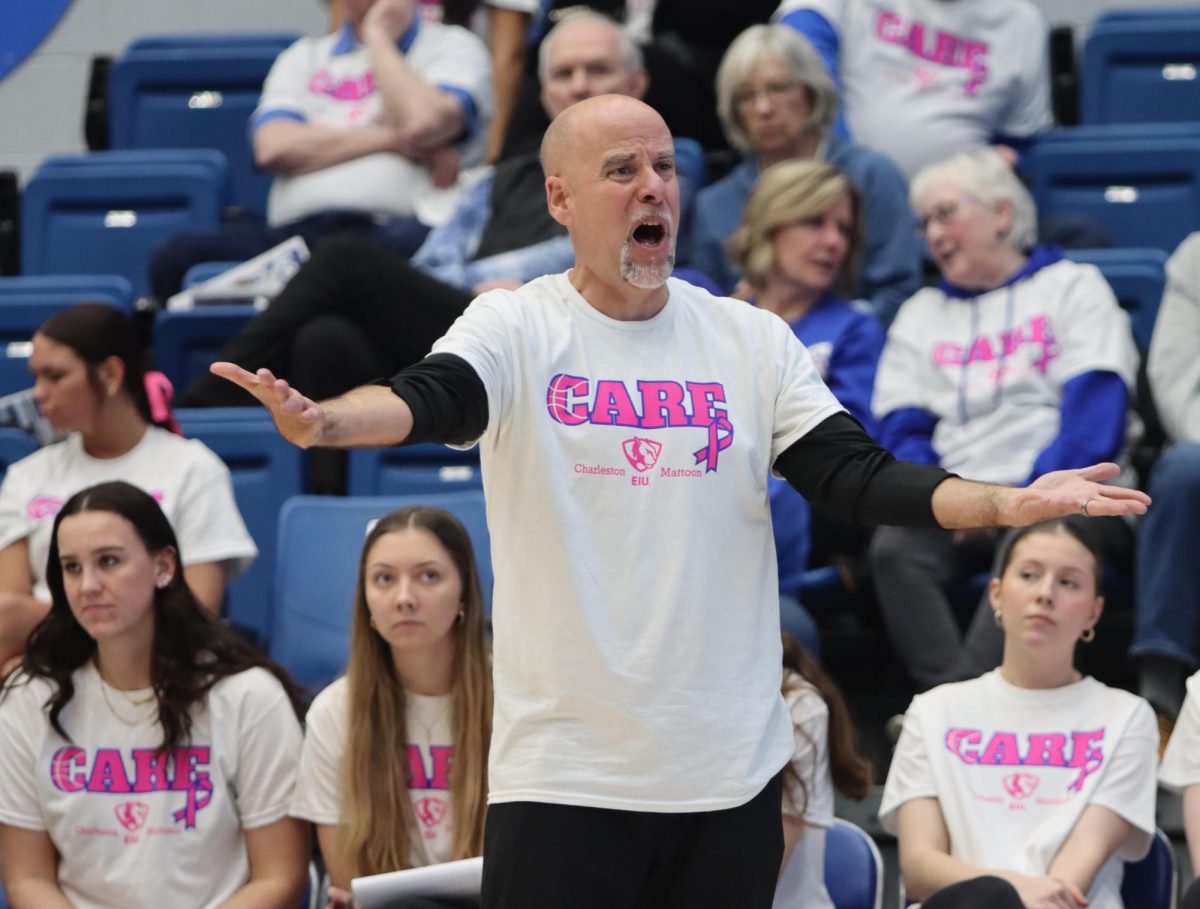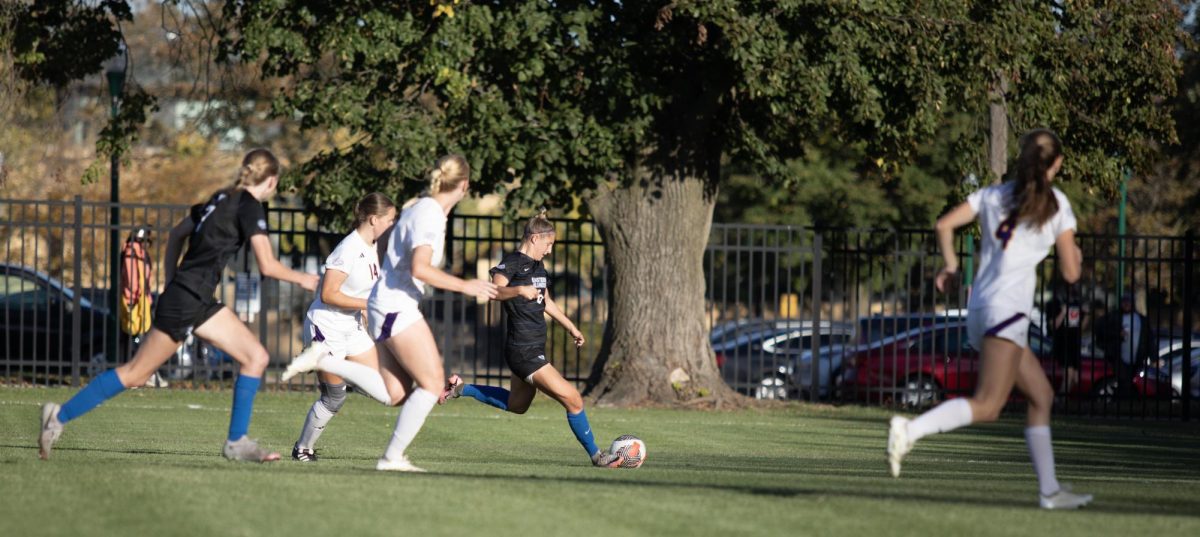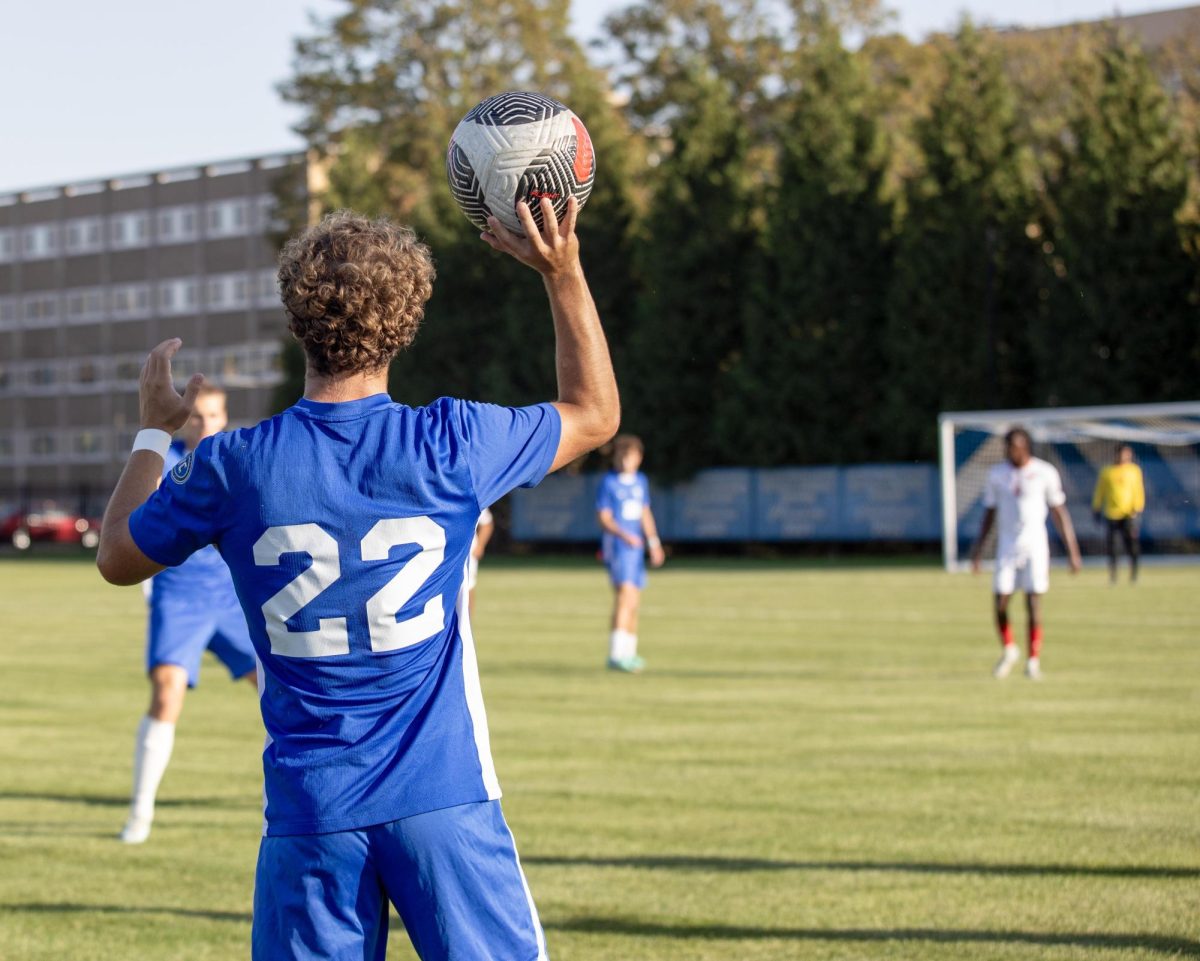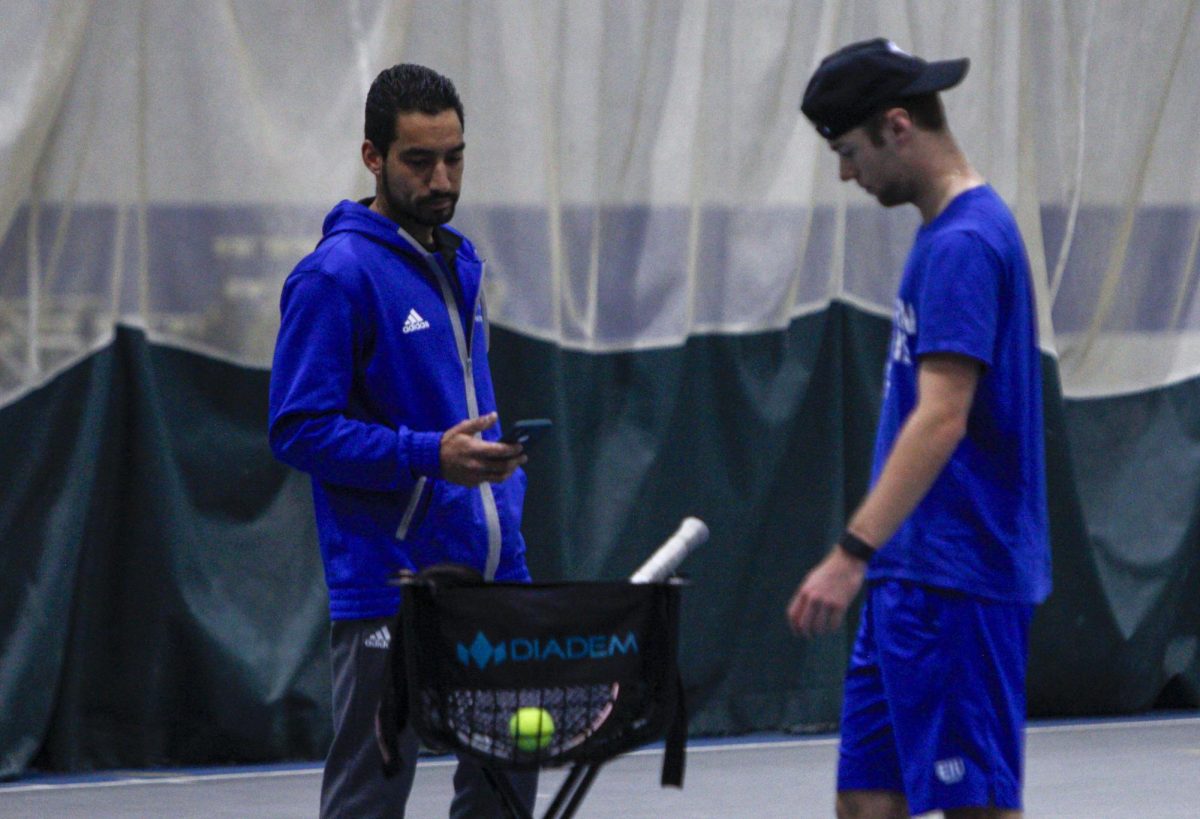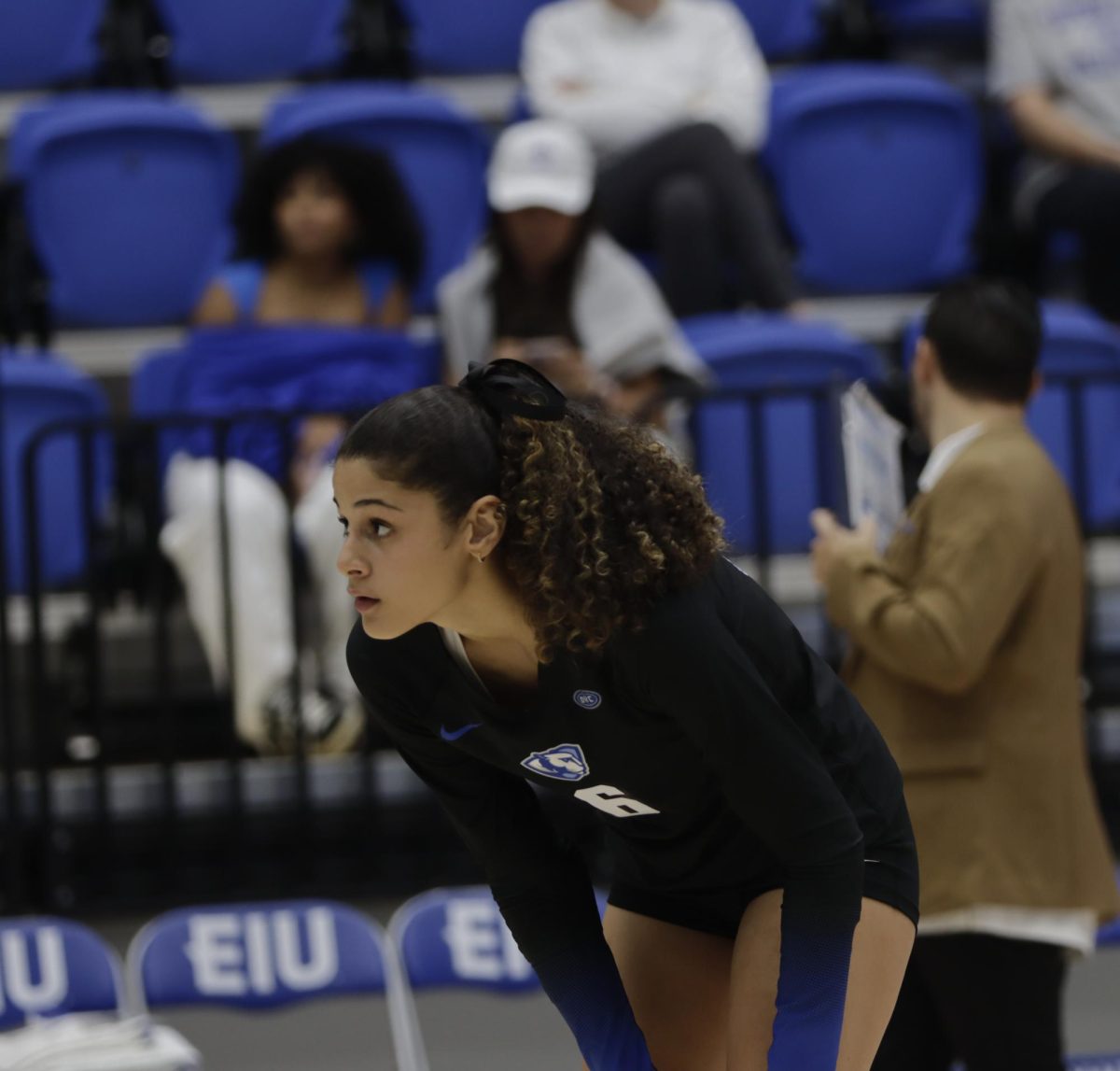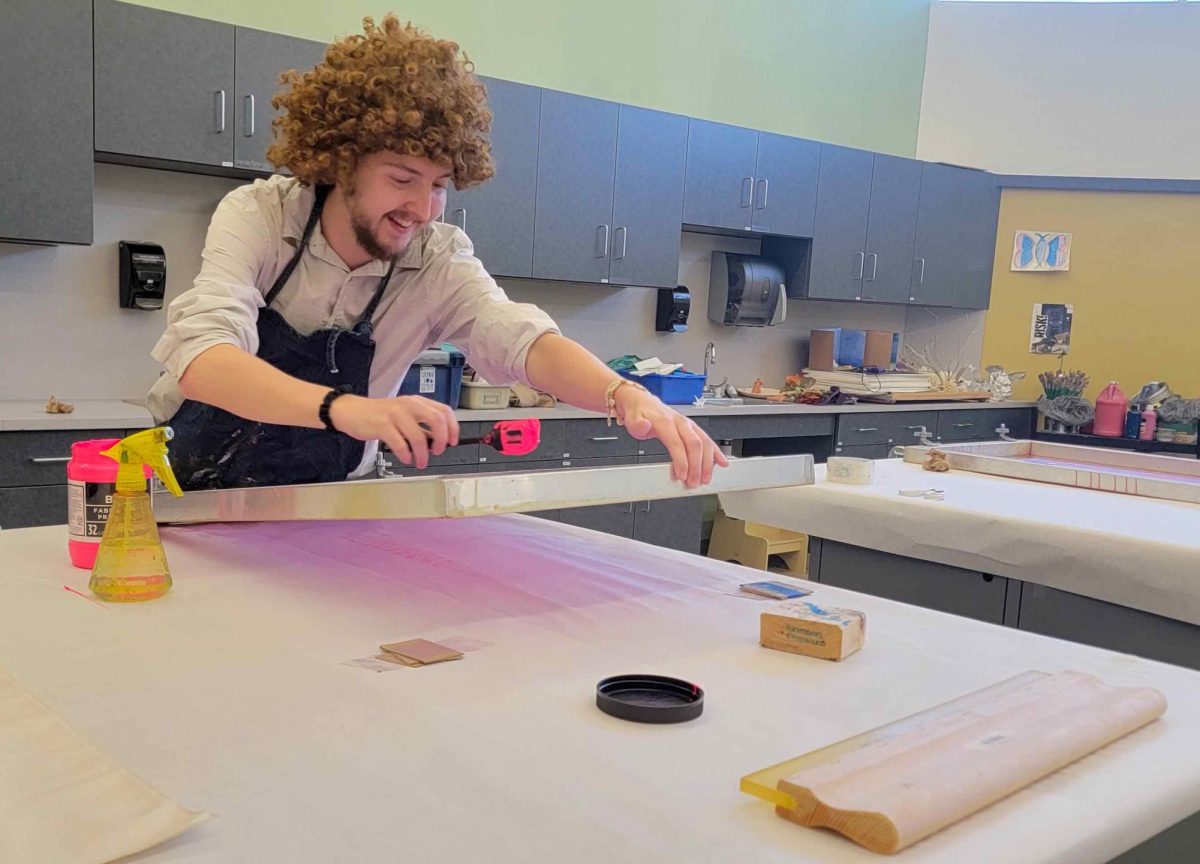Cadets make a splash at training
August 28, 2014
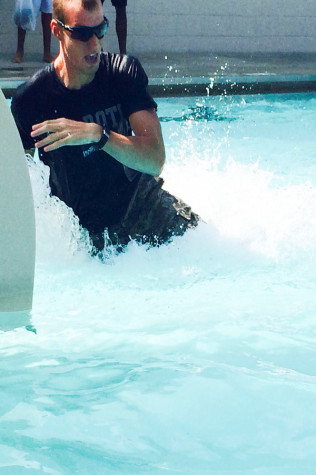
Gerhardt Shafer, a senior engineering major, goes down the slide during their combat water training Wednesday at the Charleston Rotary Community Pool.
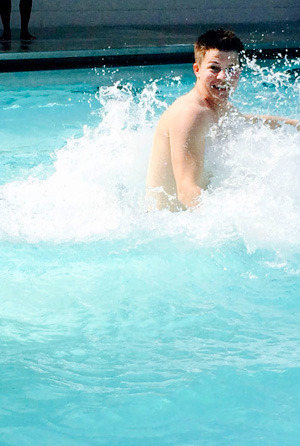
Jack Darling, a senior organizational and professional development major, slides into the water while taking a break from training Wednesday at the Charleston Rotary Community Pool.
Doing summersaults, backflips and intentionally falling into the pool blindfolded were all parts of a normal combat water survival test Thursday afternoon.
Eastern’s ROTC students practice this survival test yearly as a way for them to build confidence dealing with aquatic situations.
Graduate student Josh Smith said the tests involve the cadets doing things like jumping in the water blindfolded with all of their gear on and diving in to learn how to swim while holding a rifle.
Smith said the gear itself weighs around 20 pounds when it is dry and can easily increase by 10 pounds when wet.
Smith said these lessons are all required in order to commission into 2nd Lt., which is their equivalent to graduating, but if students fail the swim test it means they either need to practice swimming more or take more swim classes.
“They just have to get more confident in the water,” Smith said.
Smith said the most important aspect about the exercise is to allow the cadets a confidence boost in the water; he said they do anything they can, from encouraging words to even teasing.
Smith said they have a pole they hold out to those who feel like they cannot fully make it across; as the cadets reach for the pole, the others will pull it away forcing them to swim a little closer each time.
However, many people stand around the pool watching and trained lifeguards are on duty just in case.
“Anything to try and get them to overcome their fears,” Smith said. “You can’t just be confident on land.”
Fear is something many people go through when they are in or out of water. One girl is so afraid of the water that each time she has been in ROTC she has not quite overcome the fear yet.
Jessica Buckley, freshman finance major, said she could not swim and the entire ordeal was scary, but it would probably be more enjoyable if she knew how to swim. Like her fellow cadets, Buckley was also pushed into the water blindfolded with her gear on.
“I felt like my life was gone before my eyes,” Buckley said. “’Don’t die’ was my motto the whole time.”
Buckley said she enjoys the entire aspect about ROTC—except swimming.
She said when she was in high school she did ROTC and wanted to continue the program here at Eastern.
Despite not liking the combat water test, Buckley said she felt entirely comfortable with the men who worked with her.
She said they help a lot and make the program feel like a family.
Buckley advised any student thinking of enrolling in ROTC to learn how to swim first.
Jack Darling, a senior organizational and professional development major, is in his fourth year doing the survival exercises and he looks at it now from a different perspective compared to when he was a freshman.
Darling said, as seniors in the program, they are sometimes the first ones in the water and it is up to them to show the newcomers how everything works and to keep calm.
“You won’t be much of a leader if you tell them to go get in the pool and stand there (watching),” Darling said.
Panic is the biggest issue many of the new students face in the program.
Darling said when he did the jumping exercise with gear on he would get into the water, drop everything and surface immediately. Now that he has done the test numerous times, he allows himself a few seconds of focusing before surfacing so he does not panic.
“It’s like a millisecond pause where everything slows down and you realize what you need to do,” Darling said.
Darling advised newcomers to stay calm and listen to their fellow cadets.
Capt. Dan Alix said it is rewarding to see his cadets progress through the program from start to finish.
He also said the hardest part of teaching the new students is getting past their first semester because the decisions they make can affect them down the road.
As for the veterans, Alix said the hardest part is teaching them how to progress from a follower into a leader and get them to understand why they make the necessary decisions.
“Failure is OK as long as you’re winning from it,” Alix said.
Roberto Hodge can be reached at 581-2812 or rlhodge@eiu.ed



